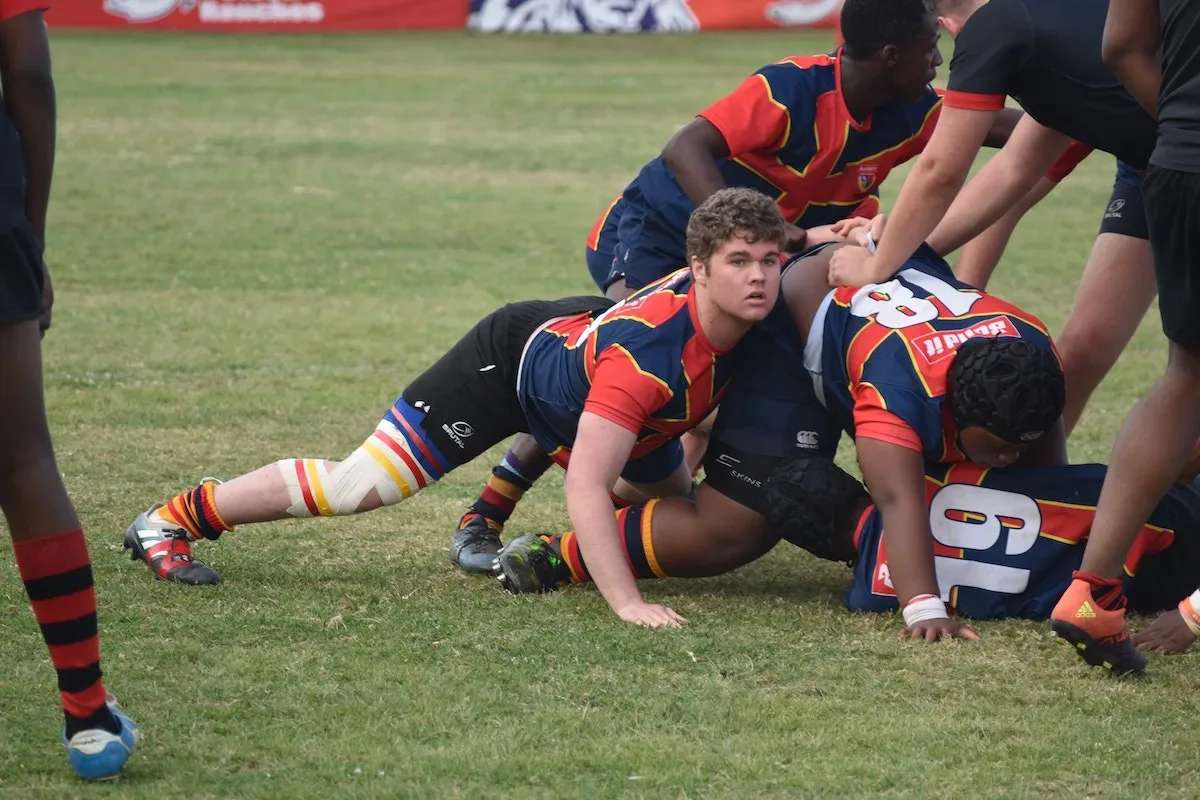Rugby is a sport that demands not only physical strength and agility but also strategic thinking and quick decision-making. In a game where split-second decisions can determine the outcome, honing your decision-making skills is crucial to succeed. It is the ability to make the right decision at the right time that sets great rugby players apart from the rest.
The first step in mastering decision-making skills for rugby is to understand the game thoroughly. You must have a good knowledge of the rules, the different positions, and the tactics involved. Knowing the strengths and weaknesses of your team and the opponents will help you make better decisions on the field.
Another crucial aspect of decision-making in rugby is communication. As a player, you need to be able to communicate effectively with your teammates and coaches to make quick decisions that can change the course of the game. Good communication helps to avoid confusion and misunderstandings, which can lead to costly mistakes.
One of the most significant challenges in rugby decision-making is dealing with pressure. The ability to stay calm and focused in high-pressure situations is essential. You must be able to assess the situation quickly, identify the best course of action, and execute it confidently.
Practice is another key to improving your decision-making skills in rugby. Regular training sessions that simulate game situations can help you develop your ability to think on your feet and make quick decisions. Analyzing past games and identifying areas for improvement can also help you hone your decision-making abilities.
Types of decisions in rugby
There are various types of decisions that need to be made in rugby, including strategic decisions, tactical decisions, and individual decisions.
Strategic decisions involve determining the overall game plan and long-term objectives for the team. For example, the coach might decide to focus on a particular area of play, such as the scrum or lineout, or to adopt a defensive or attacking strategy for the game.
Tactical decisions are more immediate and involve making choices during the game based on the situation on the field. These decisions can be made by the coach or the players and can include changes in formation or tactics to exploit weaknesses in the opposing team’s defense or to defend against their attacks.
Individual decisions are made by each player on the field and can include deciding when to pass, when to run, when to kick, or when to tackle. These decisions are often made in split seconds and require quick thinking and good judgment.
In addition to these types of decisions, referees also make decisions during the game, including decisions about fouls, penalties, and scoring. These decisions can have a significant impact on the outcome of the game and require a high level of knowledge and expertise on the part of the referee.
Key decision-making skills
There are several key decision-making skills that are essential for success in rugby:
- Situational awareness: The ability to quickly assess the situation on the field and make decisions based on the current circumstances is crucial. This includes understanding the positions of the players, the score, the time left in the game, and any other factors that might affect the outcome.
- Judgment: Making good decisions requires good judgment, which is the ability to weigh the pros and cons of different options and choose the best course of action. This involves considering both short-term and long-term consequences of each decision.
- Communication: Effective communication is essential in rugby, as it allows players to share information, coordinate their actions, and make decisions together. This includes both verbal and nonverbal communication.
- Adaptability: Rugby is a dynamic sport, and the ability to adapt to changing situations is crucial. This includes being able to adjust to changes in the game plan, changes in the opposing team’s strategy, and unexpected events.
- Confidence: Making decisions with confidence is essential in rugby. This means trusting your own judgment, being assertive when necessary, and taking calculated risks when appropriate.
- Resilience: Rugby can be a challenging and physically demanding sport, and the ability to bounce back from setbacks and stay focused on the game is critical. This includes maintaining a positive attitude, staying motivated, and staying focused on the task at hand.
By developing these decision-making skills, rugby players can improve their performance on the field and lead their teams to victory.
How can I improve my decision-making skills
Improving your decision-making skills in rugby is crucial for success on the field. To achieve this, you can start by studying the game, including the rules, strategies, and techniques used by top players and coaches. Analyzing past games can also help you identify areas where you need to improve.
In addition, practicing under pressure can help you hone your decision-making abilities. You can simulate game situations by playing scrimmages or doing drills that require quick thinking and fast reactions. Effective communication is also essential for making good decisions in rugby. You can practice communicating with your teammates and developing clear and concise messages that can be easily understood.
Building your confidence by focusing on your strengths, celebrating successes, and learning from mistakes is also critical. Seeking feedback from coaches and teammates can help you identify areas where you need to improve and make adjustments to your game.
Remember that improving your decision-making skills takes time and practice, so be patient and persistent in your efforts. With dedication and a willingness to learn, you can become a valuable player on the field and lead your team to success.
How decision-making skills from rugby can Help in everyday teenage life
Decision-making skills that are used in rugby can be transferred to everyday teenage life to help individuals make better choices and achieve their goals. These skills are not just limited to the rugby field, but can be applied to various aspects of life such as school, relationships, and future careers.
Situational awareness is a skill that can be useful in everyday life. Being aware of your surroundings, understanding your options, and evaluating potential outcomes before making a decision can help teenagers make better choices. For example, when choosing between studying for an exam or going out with friends, being aware of the consequences of each decision can help teenagers make a more informed choice.
Judgment is another skill that can be useful in everyday life. Teenagers are faced with many decisions, some of which can have long-term consequences. The ability to weigh the pros and cons of different options and choose the best course of action can help teenagers make better decisions. For example, deciding between taking a gap year or going straight to college requires good judgment and a consideration of the potential benefits and drawbacks of each option.
Communication is also essential for making good decisions in everyday life. Effective communication skills can help teenagers express their needs and opinions, and understand those of others. This can help teenagers build healthy relationships with peers, teachers, and family members, and make better decisions based on feedback from others.
Adaptability is another skill that is useful in everyday life. Life can be unpredictable, and the ability to adapt to changing situations can help teenagers overcome obstacles and achieve their goals. For example, being able to adjust to changes in school schedules or dealing with unexpected challenges in a relationship requires adaptability.
Finally, confidence and resilience are essential for making good decisions in everyday life. Teenagers need to have the confidence to trust their own judgment, take calculated risks, and be assertive when necessary. Resilience is also important for bouncing back from setbacks and staying focused on their goals.
In conclusion, the decision-making skills developed in rugby can be transferred to everyday teenage life to help individuals make better choices and achieve their goals. By developing situational awareness, judgment, communication, adaptability, confidence, and resilience, teenagers can make more informed decisions, build healthy relationships, and overcome obstacles in their lives.

